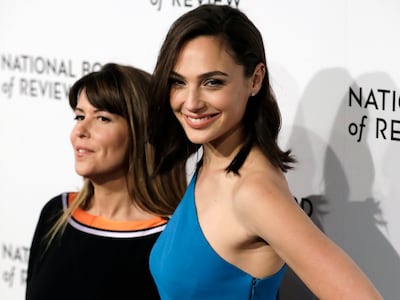Hollywood agents, stars and studios alike will be eagerly watching developments in the ongoing legal wrangle between Scarlett Johansson and Disney, in what could prove to be a landmark case for the still-evolving streaming era.
The actress and her lawyers claim that Disney breached her contract with Marvel for the recently released Black Widow, by putting pressure on the comic giant to simultaneously stream the film on Disney+ as it was released in cinemas.
Johansson's contract relied heavily on bonuses related to box office takings, and the star's legal team claim the decision to stream the film has adversely affected her ability to earn said bonuses, to the tune of about $50 million according to the lawsuit.
They seem to have a point – the film has so far taken just more than $300m at the global box office, a poor return by Marvel standards, with the studio's films frequently racking up ticket sales around the $1 billion mark. Cinema owners in the US have also asserted their belief that low returns are because of the film also being available for home viewing.
Streaming ratings agency Samba TV seems to confirm cinemas' claims, estimating that Black Widow took $131.6m in the US alone during its first 10 days on Disney+. Disney, like all major streamers, doesn't release viewing figures for its streaming service, though unusually it did announce that the film, which can be viewed for $30, took $60m in its opening weekend on the platform.
Disputes between Hollywood stars and studios aren't entirely uncommon, particularly during a time when the combination of a pandemic and the rising popularity of streaming means the whole model for generating income from movies – and thus for compensating talent – is constantly evolving.
Warner Bros, for example, has already moved its entire 2021 schedule of films to be released on HBO Max on the same day as the titles hit cinemas. Unlike Disney, however, Warner appears to have successfully negotiated new deals with its stars behind the scenes, which is precisely where these kind of disputes usually take place. After all, in an industry obsessed with appearances, nobody wants to open themselves up to accusations of greed.
According to The New York Times, Gal Gadot and director Patty Jenkins were handed an extra $10m apiece after “tense” negotiations over reduced box office receipts due to Wonder Woman 1984's simultaneous HBO Max release. Warner Bros is estimated to have paid out a total of $200m as a result of renegotiating contracts to account for its 2021 cinema and streaming strategy, The Hollywood Reporter claims.
So it's not the existence of the Johansson-Disney dispute that is unusual, but rather its very public nature, and this seems to be something the actress and her team are proactively encouraging.
Legal experts have noted that the star's contract with Marvel would almost certainly include an arbitration clause, meaning this kind of argument would typically be settled behind closed doors. By instead suing parent company Disney for “inducing” Marvel to breach her contract, Johansson's team are able to take the case to open court instead.
In a further unusual development, Disney has been decidedly vocal in its response to Johansson's claims, with the gloves apparently very much off. In a break with tradition, the studio went public with the revelation that the actress already received $20m for the film, and insisted that the Disney+ release “significantly enhanced her ability to earn additional compensation on top".

“There is no merit whatsoever to this filing. The lawsuit is especially sad and distressing in its callous disregard for the horrific and prolonged global effects of the Covid-19 pandemic," Disney said.
The crux of the case lies in Johansson's assertion that she was promised an exclusive theatrical release for Black Widow, and thus it would be available only in cinemas for a period before moving to streaming. Disney counters that this is not the case, arguing the star was guaranteed only a “wide theatrical release" which the studio delivered, albeit concurrently with its debut on Disney+.
Perhaps unsurprisingly, Johansson's fellow Marvel stars have been keeping their counsel as the dispute unfolds.
So far, only Dave Bautista, who plays Drax in Guardians of the Galaxy, has commented publicly on the situation. His tweet joking that Marvel should have made a Drax film instead seems to suggest he would not be suing Disney in the same situation.
Outside the Marvel family, Deadline reports that Dwayne Johnson has “no intention” of following Johansson's lead over the simultaneous release of Jungle Cruise last weekend, while former Hollywood Reporter editor and entertainment lawyer Matt Belloni claims in his blog that Emma Stone (Cruella) and Emily Blunt (Jungle Cruise) are both considering taking action over lost earnings from their own films. None of the aforementioned stars have made any official comment about such disputes.
Meanwhile, there has been no official word from either Disney or Johansson about how the lawsuit may affect the actress's plans to produce The Twilight Zone Tower of Terror movie based on the popular Disney theme park ride. At face value, suing your employer wouldn't seem the best way to smooth the path for future projects.
It's worth remembering, too, that the last time Disney got into a public spat with one of its big names, over Guardians of the Galaxy director James Gunn's tasteless old social media posts, Warner Bros stepped in and gave Gunn The Suicide Squad to direct.
Perhaps we can expect to see Johansson donning Batgirl's cape or rocking Supergirl's red boots in the not-too-distant future?

